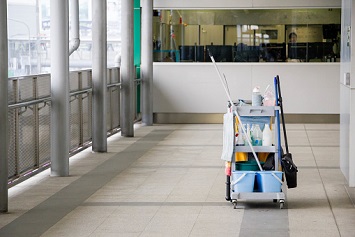Safety policies can be a tricky for facilities managers to write up, especially given the breadth of information included in the state and federal guidelines. This is even trickier if your facility falls into a gray area.
Recently, a question came into the experts at safety.blr.com regarding the requirements for Hepatitis B vaccinations in a bloodborne pathogens policy at a distribution facility. A facility manager, who operates distribution centers in California and Pennsylvania, expressed a bit of confusion as the regulations outlining vaccine requirements focused on healthcare facilities. They wondered if the Hepatitis B vaccine requirement only applied to employees in the healthcare industry, or if it more broadly applied to any facilities and janitorial teams that could possibly come into contact with bloodborne pathogens.
According to the experts, both the California and federal bloodborne pathogens standards require employers to make available the hepatitis B vaccine and vaccination series to all employees who have occupational exposure to bloodborne pathogens, including facilities and janitorial staff who are responsible for cleaning or decontaminating areas contaminated with blood or other potentially infectious materials (OPIM). (See 29 CFR 1910.1030(f)(1)(i) for the federal requirements, which apply to your Pennsylvania facility, and 8 CCR 5193(f)(1)(A) for the California requirements.) If your facilities and janitorial staff are expected to clean and decontaminate areas contaminated with blood or OPIM as part of their job duties, the bloodborne pathogens standard will apply and they must be provided with the hepatitis B vaccine.
The vaccine must be made available at no cost to employees at a reasonable time and place and be provided by or under the supervision of a licensed physician or other licensed healthcare professional. Additionally, the vaccine must be made available within 10 working days of initial assignment after an employee has been provided with information on its efficacy, safety, method of administration, the benefits of being vaccinated, and that the vaccine will be offered free of charge. The vaccine does not need to be provided to employees who have previously received the complete hepatitis B vaccination series or who are immune as indicated by antibody testing or when the vaccine is contraindicated for medical reasons. Participation in a prescreening program must not be a prerequisite for receiving hepatitis B vaccination.
Employees may decline to accept the hepatitis B vaccination, but they must sign a mandatory Hepatitis B Vaccine Declination statement. If an employee initially declines hepatitis B vaccination and decides to accept the vaccination at a later date, the employer must make available hepatitis B vaccination at that time.

